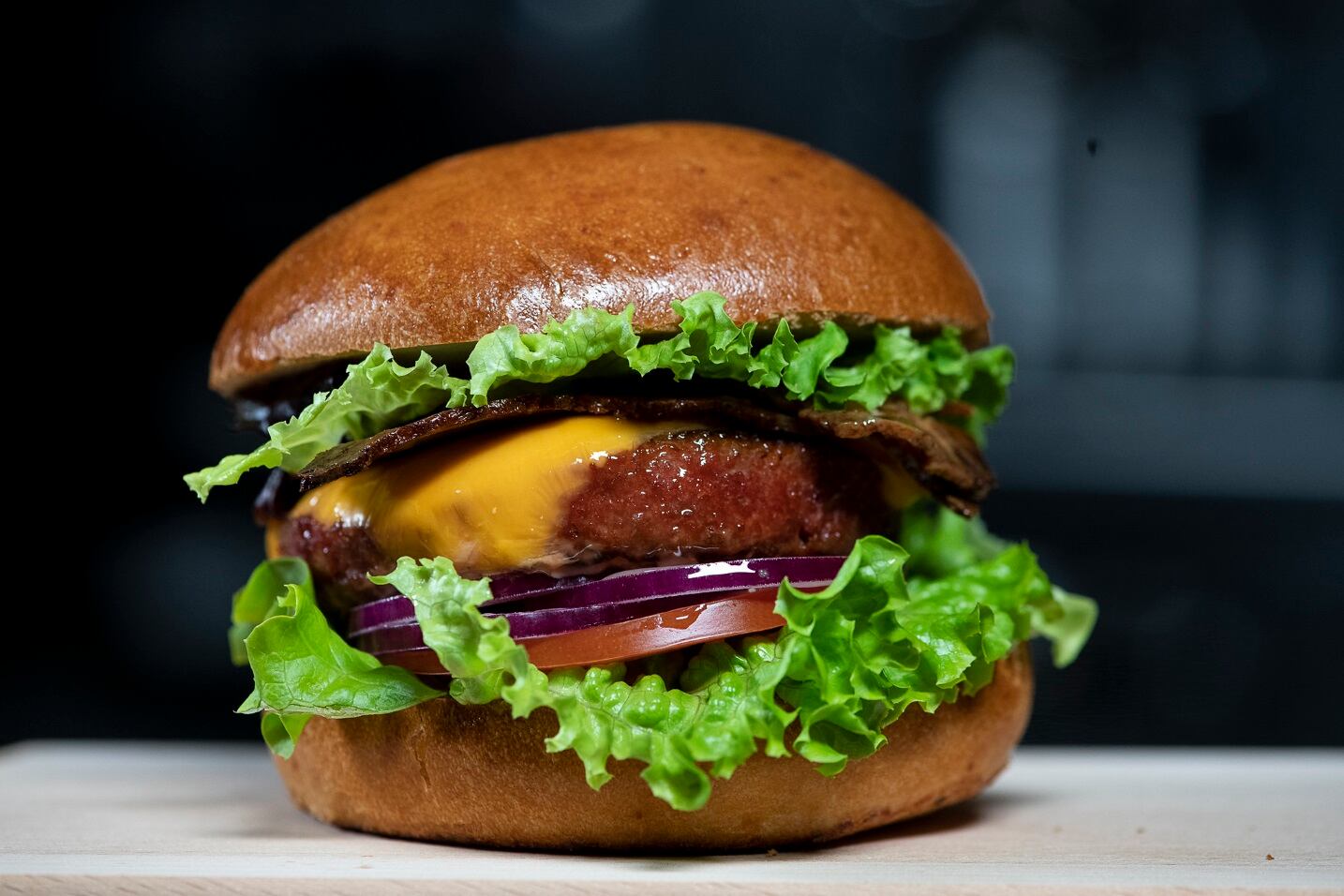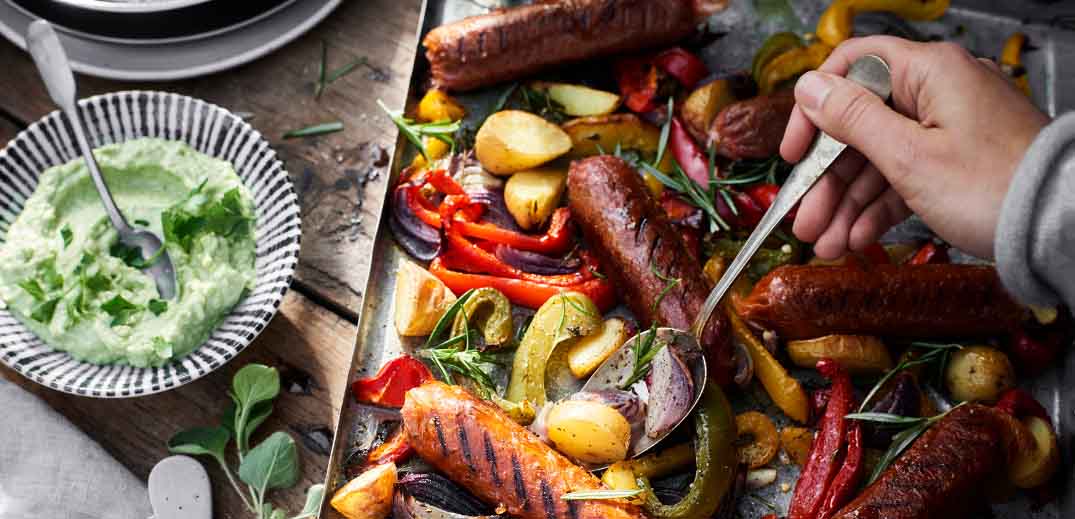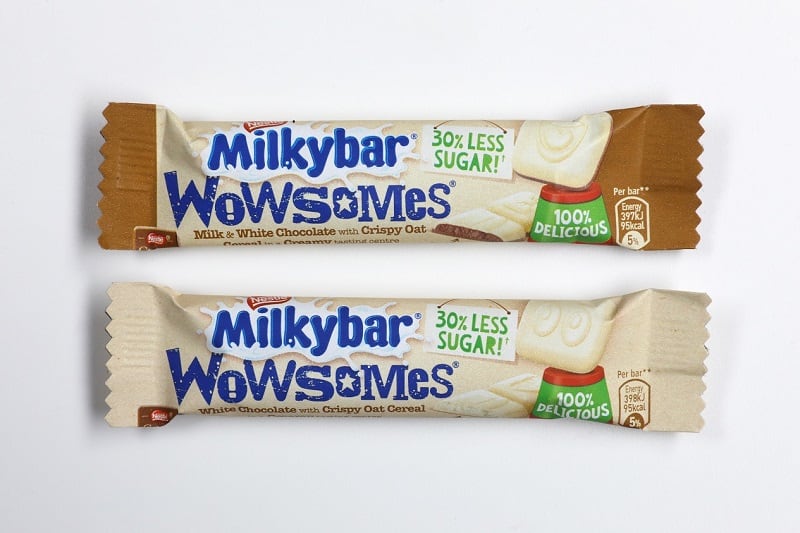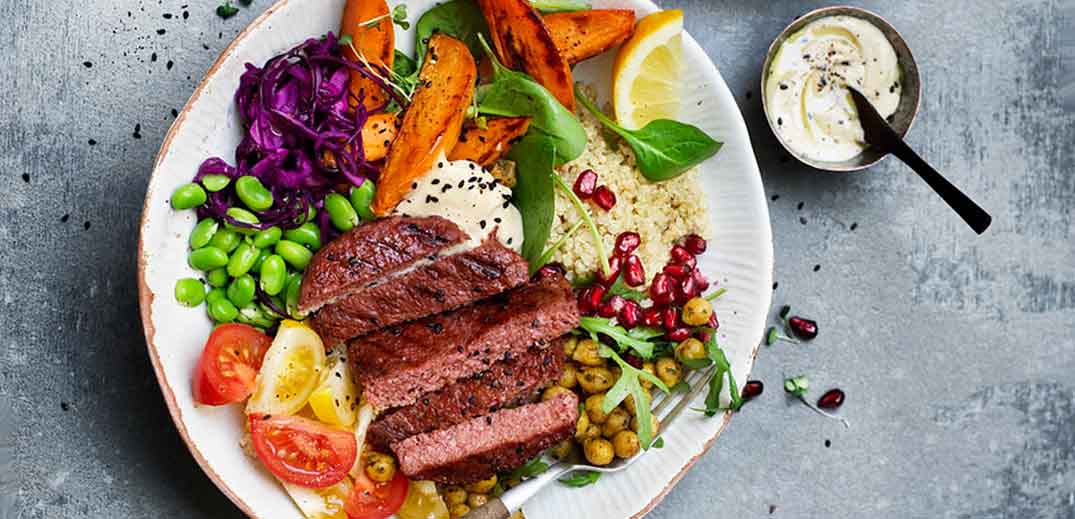The Swiss company grew sales of its plant-based products to CHF200m in 2019, CEO Mark Schneider revealed yesterday. This success was driven by innovation and new product launches, the chief executive noted during a conference call to discuss the company’s 2019 financial performance.
“One of the significant products that people talked about [was] the plant-based burgers where, early on, we were able to compete both in Europe and the United States. In Europe with the Incredible Burger, which is soy-based, in the United States with the Awesome Burger that is yellow pea based. Both of those fantastic products that have taken good share in the market.”
Nestlé was able to leverage its ’30-year history’ in plant-based to capitalise on the jump in consumer interest by developing meat analogue recipes ‘really, really fast’. “This is why we didn't miss much of a beat and I think we are out there now among the top offerings. We continue to be very, very much invested in that race,” Schneider said.
However, Schneider stressed, there is significantly more opportunity for Nestlé to flex its innovation muscles in the meat-free category.
“This story is way, way, way, beyond the burgers,” he said. “We are growing at double-digits, strong double-digit rates. And the good news is that these growth rates keep accelerating. So here is something that is way beyond just a short term trend and rather something that does have runway in it.”

A ‘once in a generation’ opportunity in prepared dishes
Beyond burgers, Schneider noted the development of analogue ‘meatballs’, where ground beef is replaced with plant protein.
“We are talking chicken analogue products like chicken nuggets and chicken fillets. And we have been working now on tuna salad analogue, which I think holds great promise and should be out on the shelves later this year.”
Schneider said it is ‘very important’ for Nestlé to ‘gain credibility’ with these pure-play ingredients in the ‘super attractive’ meat analogue sector. However, he believes that plant-based is essentially a blue-sky opportunity for Nestlé.
“The bigger picture of the size of the opportunity is to look at our CHF12bn category which we call prepared dishes into cooking aids. This category as you know is a signature category for us. It has delivered solid growth, but not exciting growth in recent years.
“What you're seeing here is a once in a generation opportunity to revive, rejuvenate, re-energize this category because these ingredients, these plant-based ingredients, can find their way in so many of our dishes in follow-on products that make up this category.”
Schneider said he could see the plant-based trend having relevance across many of Nestlé’s established brands and product lines, from frozen pizza and chilled meals to seasonings. Innovation in this space has the potential to ‘make this category more exciting going forward’, he argued.
Committed to frozen
Schneider shrugged off ongoing speculation that Nestlé could look to offload its frozen business, which includes brands like Buitoni and Lean Cuisine, and insisted that the growth potential in plant-based innovation is not ‘the only reason to maintain that business’.
Fiscal 2019
- Organic growth of 3.5%
- Total sales up 1.2% to CHF92.6bn
- Underlying earnings per share increased by 11.1% in constant currency and by 9.8% on a reported basis
“I think we've seen a turnaround in frozen as a category overall and I think we're also seeing very promising work in our own frozen business. But I think it’s one added opportunity here to breathe new life into this category. Hence I would [say], it's a once in a generation opportunity to rethink these products and to give them competitive advantage.”
He stressed that the ‘beauty’ of innovating plant-based meals is that there is opportunity to straddle both the frozen and chiller aisles. “You can actually do them both ways. These are chilled products and we have a chilled pipeline and then you can also serve them frozen… which I think makes them very versatile and that's one of the reasons why these ingredients are very, very powerful.”
Nestlé eyeing acquisitions for 2020
Alongside the scope for plant-based innovation to support organic growth and market share gains in the coming year, Nestlé’s chief executive confirmed that the Swiss food giant remains on the hunt for acquisitions.
As part of its portfolio transformation strategy, Nestlé has shed underperforming brands and acquired high-growth businesses in recent years.
Commenting on the group’s M&A strategy, Schneider said the businesses Nestlé has invested in are ‘higher growth’, ‘higher margin’ and ‘more in tune with younger more affluent consumers’. “They are more premiumised products. They also make better use of digital opportunities into personalisation, so very much continued trends here that are going to be very important for the company,” he revealed.
However, Schneider did say that Nestlé’s portfolio management programme hadn’t achieved the ‘balance’ he would like in 2019 – with more disposals completed than acquisitions.
“As you know it's been a busy year on the divestiture front. The one regret I have over the year is that we didn't do that much on the acquiring side. I hope that's going to change now in 2020.”




